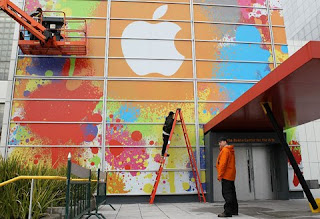If you aren't up to your ears in lectures, publications, conversations and panels about new models, then you've been living under a rock. It seems like I can't go one day without hearing about the "new model," this silver bullet that will save the arts; but what is this "new model"?
I think every single arts professional agrees, that today, more than ever, it is critical for artists and organizations to change. Indeed, this economic climate has provided the perfect back drop for the word CHANGE, after all, it was our current models, both for-profit and non-profit, that got us into this mess. However, for all this talk about change, there is little talk, or at least little clear and concise talk, about how.
I am jazzed to be living in this time of change and different forms of thinking; and although I love reconstructing, questioning and critiquing the current state of affairs, I am growing increasingly frustrated at the lack of solutions. I am not expecting people to say: "here is the solution that will save us all!" but I do think that we are having conversations ad nauseum about what we are doing wrong and not enough conversations about what we are doing right and how to .
Recently, I attended a panel at the Foundation Center called "Investing in Our people: How We Support our Arts and Culture Workers and Strengthen the Field" and although the focus of the panel was not necessarily about new models, the conversation quickly went into social capital and sustainability. I was impressed by the diversity in opinions from the speakers and really interested in their perspective, it was great to hear their passion and to see them engage in heated conversation. Although I enjoyed the panel, I felt exactly what I describe above. Yes, we are at a critical juncture, yes we need to change, , yes traditional for-profit and non-profit models are flawed, yes there are cool hybrid models out there yes, yes, yes....But now what? How do we translate these business hybrid models into models for arts organizations/ventures? What will that entail? How can we move from a predominantly charity based model into a profit generating venture without losing our mission? and most importantly What is the risk? and are we willing or even capable of taking it?
I understand how intrinsically tied we are to our "routines" and how difficult it is to break a cycle and even more so to re-invent an industry; but all this talk about change is making me actually want to see the change. I obviously don't have answers to these important questions, and I don't know if someone out there does...yet, but I do know that however hard, infuriating or "trendy" these conversations are, we need to have them, because without them, we will never find a solution. Perhaps this is a little like AA, step one: acknowledging you have a problem.

